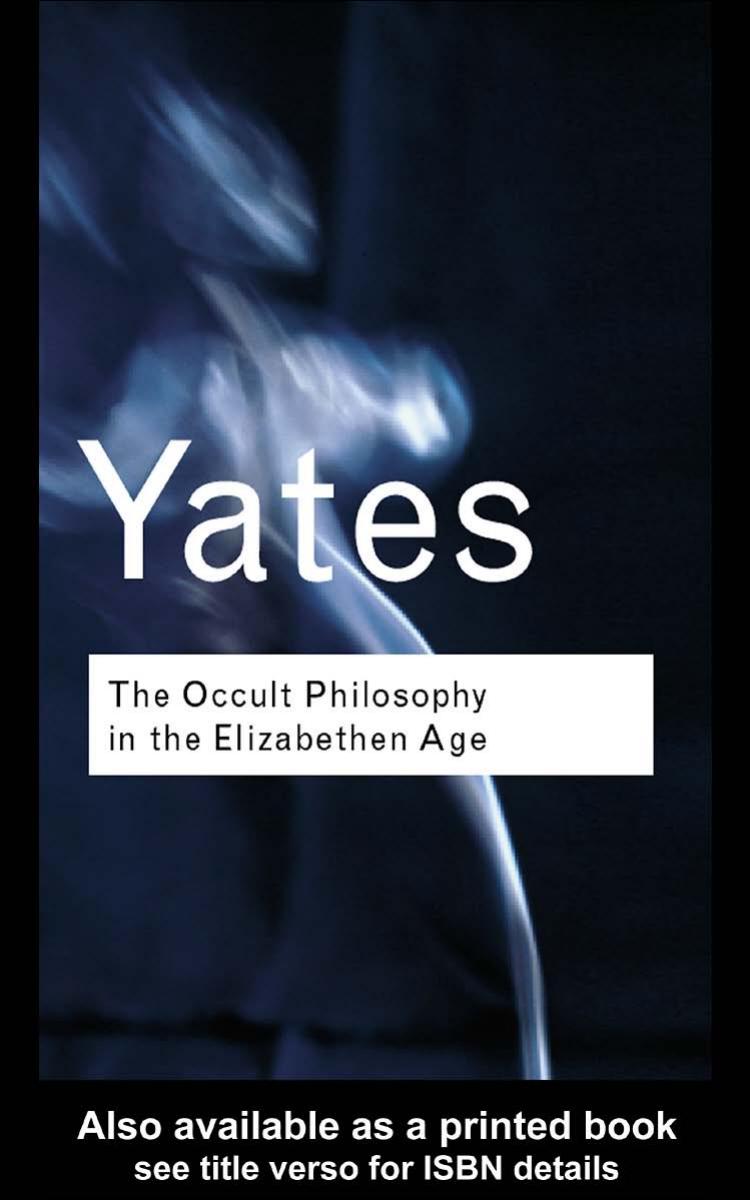The Occult Philosophy in the Elizabethan Age by Frances Yates

Author:Frances Yates [FRANCES YATES]
Language: eng
Format: epub, pdf
Publisher: Taylor & Francis
Published: 2011-07-31T16:00:00+00:00
The question of the influence of Giorgi on Spenser is complicated by the fact that Spenser is adapting the thinking and outlook of the Friar of Venice to his panegyric of Queen Elizabeth I and her imperial reform, the main concern of The Faerie Queene.27 Spenser tells Raleigh that the whole poem was planned in honour of the queen. The dedications of the individual books refer to the queen as the supreme example of the virtue which they celebrate. And the astral themes, the astral plan of the poem, are dedicated to the same object.
The suggestion that I would make is that the planetary themes of the poem should be seen as arranged, not in the fixed order of the planetary week (as Fowler has argued) but in an order deliberately selected to express the idea and purpose of the poem, the presentation of an ideal portrait of a religious and moral leader, of Queen Elizabeth I and her imperial reform. That portrait has a variegated planetary and angelic colouring. Lighted by a Sun of Christian religion and Christian Charity (Book I), it includes red glints of Martial firmness (Book II). The white Chastity of the Moon (Book III) expresses the purity of the Virgin Queen’s reform. Mercury (Book IV) includes all colours and can reconcile opposites with spiritual alchemy. The Justice of Saturn (Book V) represents the wise rule of Astraea. And with Venus (Book VI) this complex movement, or religion, or personality, takes on the colouring of a courtly cult, a court ruled over by the messianic figure whom the poem as a whole celebrates.
The work of Francesco Giorgi will not alone account for the inspiration of The Faerie Queene; I have been making enormous omissions. Though Giorgi has chapters on the Just Empire of the Prince, and on the rule of champions (or knights),28 he naturally has nothing about the sacred British-Imperial descent of the Tudors and its associations with Arthurian chivalry, so important an element in Spenser’s poem. The Giorgi influence must somehow have merged with an Arthurian-British element to form a kind of ‘British Israel’ mystique. Such a linkage would be quite possible in the highly charged atmosphere of sacred destiny, of religious mission, with which Elizabethan Englishmen maintained their morale in their dangerously isolated position. And it seems obvious that the circle whence such ideas could have emanated can only have been the circle of John Dee.
Dee was a Christian Cabalist and a British imperialist. Though in the Preface to Euclid he cites Agrippa rather than Giorgi on the three worlds, yet Giorgi’s schemes are the same in principle as those of Agrippa, though less overtly magical. The emphasis on number, the architectural imagery, and Vitruvianism, all this could have come to Spenser from the Dee circle, together with British-Arthurian legend and Cabala. Giorgi’s De harmonia mundi, though in itself an important guide to Spenser, is perhaps most important because it leads back to Dee, or to the Dee circle, as the great formative influence on Spenser.
Download
The Occult Philosophy in the Elizabethan Age by Frances Yates.pdf
This site does not store any files on its server. We only index and link to content provided by other sites. Please contact the content providers to delete copyright contents if any and email us, we'll remove relevant links or contents immediately.
| Anthropology | Archaeology |
| Philosophy | Politics & Government |
| Social Sciences | Sociology |
| Women's Studies |
The remains of the day by Kazuo Ishiguro(9000)
Tools of Titans by Timothy Ferriss(8396)
Giovanni's Room by James Baldwin(7346)
The Black Swan by Nassim Nicholas Taleb(7130)
Inner Engineering: A Yogi's Guide to Joy by Sadhguru(6796)
The Way of Zen by Alan W. Watts(6614)
The Power of Now: A Guide to Spiritual Enlightenment by Eckhart Tolle(5784)
Asking the Right Questions: A Guide to Critical Thinking by M. Neil Browne & Stuart M. Keeley(5775)
The Six Wives Of Henry VIII (WOMEN IN HISTORY) by Fraser Antonia(5515)
Astrophysics for People in a Hurry by Neil DeGrasse Tyson(5190)
Housekeeping by Marilynne Robinson(4449)
12 Rules for Life by Jordan B. Peterson(4305)
Ikigai by Héctor García & Francesc Miralles(4275)
Double Down (Diary of a Wimpy Kid Book 11) by Jeff Kinney(4273)
The Ethical Slut by Janet W. Hardy(4253)
Skin in the Game by Nassim Nicholas Taleb(4250)
The Art of Happiness by The Dalai Lama(4130)
Skin in the Game: Hidden Asymmetries in Daily Life by Nassim Nicholas Taleb(4007)
Walking by Henry David Thoreau(3962)
